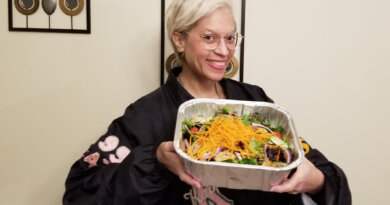Coffee, Veggies May Lower Your Odds for COVID
Why these dietary factors might make a difference is not yet known, and it’s important to note that the study cannot prove a direct cause-and-effect relationship.
The reason why coffee seems protective while tea is not could be the greater amount of caffeine in coffee, Cornelis suggested.
“Alternatively, it could be other constituents of coffee that are unique and make it distinct from tea. For example, tea is often rich in flavonoids. Whereas with coffee, it’s more polyphenols, specifically chlorogenic acid, which is actually a relatively unique constituent of coffee,” Cornelis said. “It has been implicated in other diseases not related to COVID-19 but might also be driving this relationship.”
In a similar juxtaposition, red meat consumption did not appear to boost risk for contracting COVID-19, but processed meats did.
“The relationship may not necessarily be related to meats all, but it could be the actual processing of these foods. These are just hypotheses, but because COVID-19 is so new, obviously more research is needed,” Cornelis said.
Consuming a lot of veggies appeared to be good, in terms of risk, she said, though whether specific vegetables with certain nutrient profiles make a bigger difference is unknown.
“Some of these findings, they just are indicators of good eating habits. I think it just speaks to the importance of good nutrition, not only for COVID-19, but just for overall health,” Cornelis said.
Not a substitute for vaccine
Certainly, coffee and veggies are not substitutes for the COVID-19 vaccine and other recommended preventive measures, experts say.
The U.S. Centers for Disease Control and Prevention says everyone age 12 and older should get a vaccine. Vaccines are not yet available for younger children.
Dr. Karen Studer is program director for the preventive medicine residency program at Loma Linda University in California. She said the study findings are similar to the teachings of lifestyle medicine and the idea that food is medicine.
“The benefits of a whole food, plant-based diet — which is mostly fruits and vegetables and grains — will protect you from a lot of diseases. This is exciting because it looks like it’s true for infectious disease such as COVID-19, too,” Studer said.



